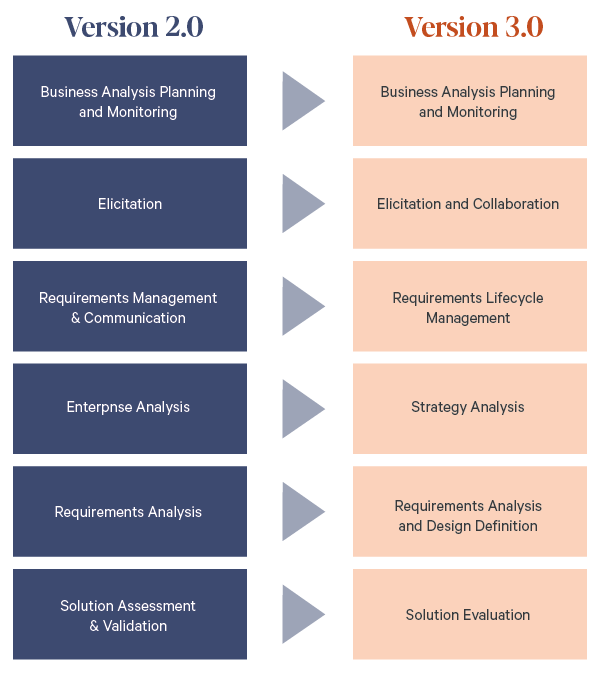Business Analysis Body of Knowledge Definition
The new BABOK Guide has just been released. So what has changed regarding the knowledge areas within the BABOK and how will that affect YOU?

We'd got used to version 2.0 and it felt comfortable but now we've got to learn a new BOK and change the way we do things or have we?
The BABOK has changed and I believe that they are great changes, so here is my take on the changes (in summary form).
Business Analysis Planning & Monitoring:
It's all about planning our BA approach and ensuring that we have mechanisms in place that allow us to inspect and adapt our approach; in order to embrace continuous improvement.
The second main component in this Knowledge Area (KA) is "Stakeholder Engagement"; this category is huge, as we need to ensure that we identify all of our stakeholders, understand their goals, and align the goals to the overall vision. It's all about stakeholder identification, engagement and communication.
Elicitation & Collaboration:
It's all about collaboration (and clear communication). This delves into more depth around elicitation and emphasises that it's not just about functional requirements.
Don't forget those non-functional requirements (think ISO25010).
I like the fact that the word "collaboration" has been linked with "Elicitation" because we are not typist or stenographers, we do not just write down what someone says. We engage in a two-way communication process in order to ensure that we understand the needs and that the requirements will fulfil that business need.
Requirements Lifecycle Management:
Emphasises that requirements are dynamic and that requirements have a lifecycle. This KA describes the tasks that we perform in order to manage and maintain requirements throughout their lifecycle.
It covers the creation, changes, prioritisation, traceability and governance processes.
The most important change for me is that it's all about VALUE; whatever RLM process you adopt, make sure that it works within the context of your organisation and that all stakeholders are considered.
If people cannot see any value in doing something then they will resist it or blatantly ignore it!
Strategy Analysis:
Previously Enterprise Analysis focused on the up-front work the BA conducted at the start of a project. Strategy Analysis is broader (which is great), it focuses on understanding the current state, defining the future state and developing a change strategy in order to achieve the desired future state.
This KA is a great step forward and emphasises that analysis skills are crucial in helping a business decide where to invest their money.
Personally, I believe that Business process management and modelling skills are significantly underutilised and when used successfully they can save an organisation a fortune.
Requirements Analysis & Design Definition:
The most important aspecthere is that Business Analysts ARE included in the design definition; think about service design, workflow, user interface etc..
Again, I believe that this is showing maturity in the understanding that to perform the analyst role you need to understand your customer(s). By understanding our customers we need to think about the context in which they may use the solution, how they may use it, why they may use it. All of these questions require us to think about "design".
Solution Evaluation:
Describes the tasks performed by BA's to assess the performance of and VALUE delivered by a solution. An important point to note here is that this KA emphasises the need for identification of impediments and recommendation for removal of those impediments in order to optimise the VALUE of the solution.
Think about iterative and proof of concepts, incremental releases, alpha or beta releases – they are all ways to add value early.
In summary, I think these changes are fantastic, they really encourage and support Business Analysts to deliver a solution that is fit for purpose and adds value to our organisation.
If we don't need a Maserati convertible we won't build one!! (even though it's way cooler than a pushbike).
Post by Jenny Saunders
Business Analysis Body of Knowledge Definition
Source: https://www.softed.com/news/what-has-happened-to-the-knowledge-areas-within-the-babok/